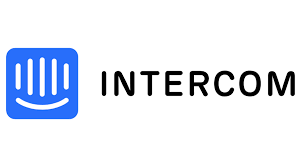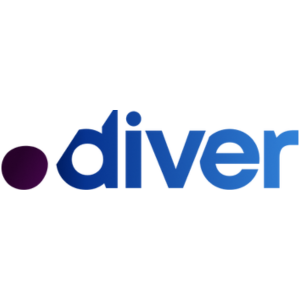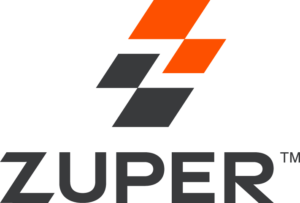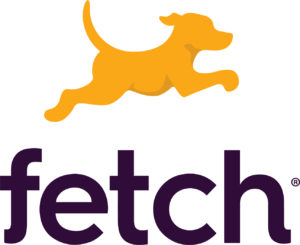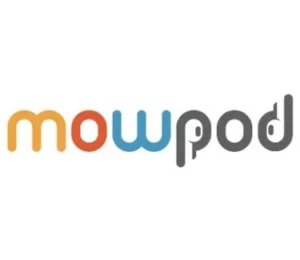LISTEN IN A POD APP
Filters
Natalie Furness | NIAM Marketing Agency
Marketing B2B2C marketplaces — Natalie Furness // NIAM Marketing Agency
This is the 2nd part conversation with Natalie Furness of Niam. Yesterday, Natalie and I started our conversation talking about how fractional cmo relationships work. Today ,we're going to talk about marketing B2B to see marketing places.
Play PodcastNatalie Furness | NIAM Marketing Agency
Leveraging Hubspot for Marketing Automation — Natalie Furness // NIAM Marketing Agency
This is the last part conversation with Natalie Furness, Managing Director at Niam. So far this week, Natalie and I have talked about why fractional cmo relationships work. Yesterday, we talked about marketing B2B to see marketplaces and today, we're going to wrap up our conversation talking about a specialty of Niam and Natalie's experience…
Play PodcastBrian Long | Attentive
Building two-way interaction via SMS — Brian Long // Attentive
This is the 4th installment of SMS Marketing Week. So far this week, Brian and I have talked about the importance of SMS marketing and how to personalize your messages. We talked about how to scale your SMS marketing list and how to add value with the messages you're sending. Today, we're going to talk…
Play PodcastBrian Long | Attentive
How SMS marketing drives incremental revenue — Brian Long // Attentive
Welcome to the last installment of SMS Marketing Week with Brian Long of Attentive. So far this week, Brian and I have talked about the importance of SMS and personalization, how to scale your SMS list, creating value added SMS. Yesterday, we talked about building two way interactions with your customers. Today, we're going to…
Play PodcastBrian Long | Attentive
Value-added SMS messages strategies — Brian Long // Attentive
Today’s the 3rd installment of SMS Marketing Week. So far this week, Brian and I have talked about the importance of SMS marketing and personalization. Yesterday, we talked about how to scale your SMS list. Today, we're going to continue the conversation, talking a little bit more about copy and creative and how to create…
Play PodcastBrian Long | Attentive
How to scale your SMS List — Brian Long // Attentive
This is the 2nd installment of a 5 part episode of our SMS Marketing Week. Yesterday, Brian and I kicked off SMS marketing week talking about the importance of SMS marketing and how to personalize some of your SMS campaigns. Today, we're going to talk about how to scale your SMS marketing list.
Play PodcastBrian Long | Attentive
The importance of SMS personalization — Brian Long // Attentive
Welcome to SMS Marketing Week on the MarTech podcast. This week, we're going to talk about the strategies, tactics and tools you need to implement a successful SMS marketing strategy. With us today is Brian Long, Co-Founder and CEO of Attentive which is a personalized text messaging platform for innovative brands and organizations that can…
Play PodcastRand Fishkin | SparkToro
Leveraging influence as a marketer — Rand Fishkin // SparkToro
We’ve come to the final installment of our Marketing Superstar Week with Rand Fishkin, Founder and CEO of SparkToro. So far this week, Rand and I have talked about his tips for building a startup that matches the goals of the founder, how to learn from your customers how to build a product led marketing…
Play PodcastRand Fishkin | SparkToro
Rand’s #1 tip: Emails > Everything — Rand Fishkin // SparkToro
This is our 4th installment of Marketing Superstar Week with Rand Fishkin of SparkToro. So far this week, Rand and I have talked about his tips for building a startup that matches the founders goals. We talked a little bit about learning from your customers and developing your market. Yesterday, we talked about building a…
Play PodcastRand Fishkin | SparkToro
Product-led marketing tips from the Founder of Sparktoro — Rand Fishkin // SparkToro
Welcome to our 3rd installment of Marketing Superstar Week. So far this week, Rand and I have talked about his lessons for building a startup that fits the founder. Yesterday, we talked about how to learn from your customers to market your business. Today, we're going to continue the conversation, talking about product lead marketing…
Play PodcastAbout Business Class: B2B
What is B2B (Business to Business)?
B2B or business-to-business refers to products and services that are designed, built, and marketed specifically for other businesses.
The Difference Between B2B and B2C (Business-to-consumer)
The main difference between B2B and B2C (Business-to-customer) is that B2B covers transactions that are done between companies as opposed to B2C, which categorizes transactions between a business and an individual customer.
B2B Marketing vs B2C Marketing
Many B2B marketers would argue B2B marketing is more complex than B2C marketing. Each market type has its own complexities.
Unlike B2C sales and marketing, which is oftentimes targeted toward persuading an individual customer to purchase a product or service, B2B sales and marketing are targeted toward convincing multiple customers such as an entire company and its stakeholders.
In the case of sales of B2B products and services, you not only need to convince the main decision-makers or buyers like the C-suite staff, but you also have to convince them that the entire department or company will benefit. Unlike most typical B2C businesses, the buyer in a B2B business is not the only one impacted by a purchase. It's oftentimes the entire company.
Faced with this challenge, many B2B companies focus heavily on generating high-quality B2B leads and ensuring their journey through the funnel is as efficient as possible to drive sales.
Apk Ticket blog is dedicated to delivering you the best news about your Android devices. We're also committed to helping you find all of the features and applications that you need to live your best life
How to generate B2B Leads & Sales
- Develop a Content Marketing Strategy:
- Create a strong B2B content marketing strategy that adds value to potential buyers, increases lead generation, and drives sales.
- Optimize your B2B Website:
- Set up your B2B website to a self-service where website visitors can be educated and B2B buyers are given the information needed for the decision-making process. Many B2B eCommerce websites have done this very well (e.g. Alibaba.com) where B2B customers can browse and purchase directly from the website.
- Offer a Free Trial:
- Offer a free trial period to new B2B customers. This permits them to use the product or service in the context of their business risk-free and helps potential customers make a decision if they are unsure. When businesses can easily see the impact your product or service has on their operations, you're more likely to obtain more sales.
- Provide Tutorials:
- Create a thorough tutorial system in order to guide the buyer through the product or service so that implementation is as smooth as possible.
B2B in the MarTech World
When people think of B2B, many think of it in the context of a traditional supply chain where a company making a physical product is purchasing components and raw materials from another company in order to sustain its manufacturing process.
The reality is that B2B exists in the digital world in much the same way that it exists in the physical world. Many of the stakeholders in corporate companies and start-ups rely on software built by other businesses in order to build their own digital products or services.
The combination of these various B2B MarTech tools is called their B2B MarTech stack.
How to build a B2B MarTech Stack
If you're building a B2B MarTech stack, there are a few categories that need to be covered. These include:
- Customer Relationship Management (CRM)
- Tracking relationships across your sales and marketing departments is essential. Your customer relationship management tool is key to doing so in order to nurture and convert B2B customers at various touchpoints. Consider using tools like Hubspot CRM, Salesforce, or SAP CRM.
- Marketing Automation
- With the evolution of data collection, consumers today expect more than just cookie-cutter ads that can apply to a large group of people. They want personalization. Nowadays, marketing automation tools like HubSpot, Marketo, and Pardot offer AI and machine learning feature to make it easier to personalize your communication.
- Content Marketing Management
- Content has been king and remains king. A robust content marketing management system is essential for a B2B marketing strategy. The best-in-class platforms offer a combination of workflow management, editorial calendars, and an array of features that make publishing content easy and efficient. Tools we recommend include Contently, DivvyHQ, and Kapost.
- Customer Data Platforms
- "Data is the new oil," is a common phrase marketers have encountered throughout the industry. Given its value, the unification and analysis of customer data should definitely be a priority for your company. Customer data platforms include tools like Segment, Optimove and Exponea.
The Importance of MarTech in B2B
By itself, B2B marketing is a relatively difficult task given it requires persuading a collection of people, such as teams and departments, at a time in order to make a sale. However, when put into the context of the present-day marketing and advertising industry, the rise in ad-blockers and the general disdain consumers have when it comes to being marketed to on social media and search, we see that executing B2B marketing end-to-end is growing increasingly difficult.
With negative sentiments surrounding advertising increasing, it's clear B2B marketers need to revise their approaches, and that approach is personalization.
In order to facilitate personalization, B2B marketers use MarTech tools, which help them access, organize, analyze, unify and action the data. The ability to personalize their marketing in this way allows them to craft outreach messages, nurture campaigns and calls-to-action that customers actually relate and respond to.
If you're interested in learning more about B2B, B2B marketing, B2B companies and B2B sales, check out the episodes listed below from the MarTech podcast.
They include interviews with marketers and influencers in the B2B MarTech industry who share their advice, strategy, and the best B2B tools on the market.
Read MoreRead Less
Sponsors of the MarTech Podcast




